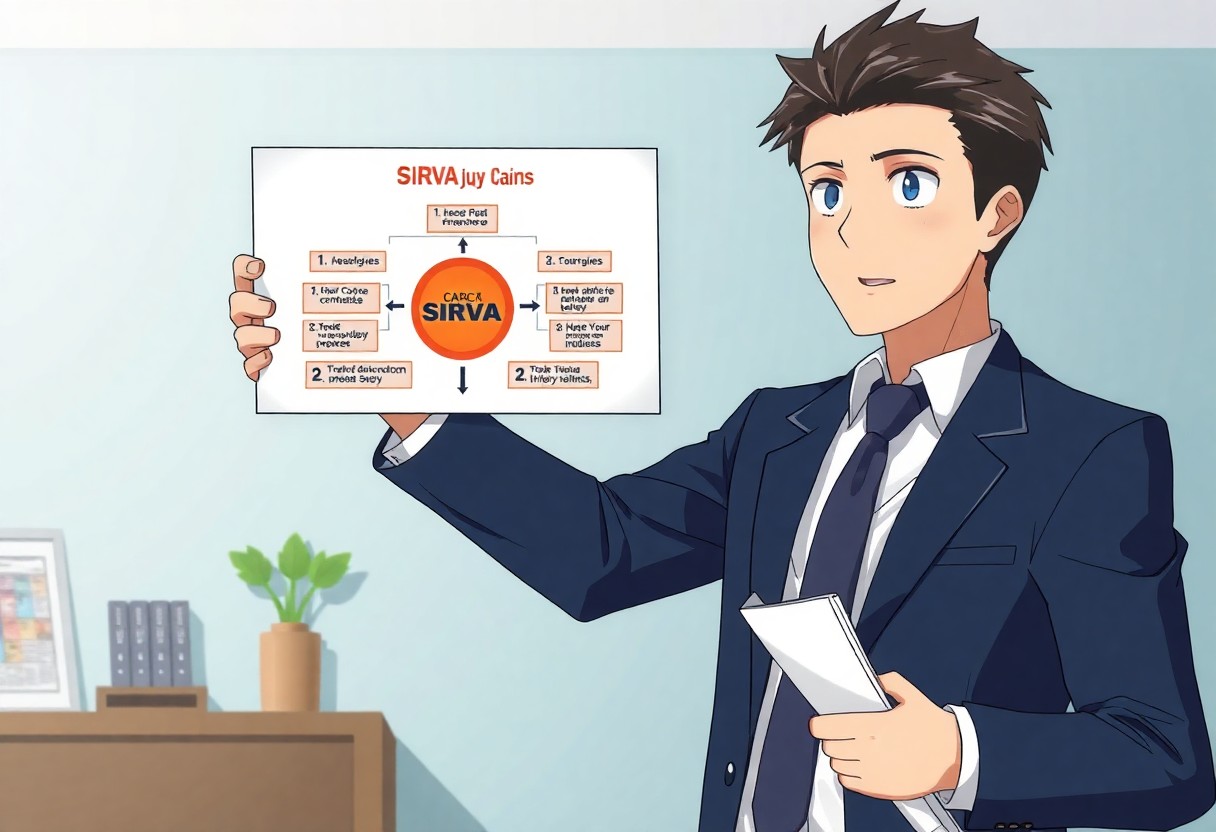Injury claims related to Shoulder Injury Related to Vaccine Administration (SIRVA) can vary significantly based on numerous factors. You may be wondering how much your specific claim is worth, as it can depend on medical expenses, lost wages, and the extent of your injuries. Understanding the nuances of your situation, including long-term impacts and any associated pain and suffering, is necessary for determining the true value of your claim. This post will guide you through the critical elements that influence SIRVA injury claim values.
Understanding SIRVA: What You Need to Know
While SIRVA, or Shoulder Injury Related to Vaccine Administration, can occur in various scenarios, understanding its implications is imperative for anyone who has experienced shoulder pain following a vaccination. You should be aware that SIRVA can lead to significant discomfort, limiting your mobility and impacting your daily life. Knowing the basics of SIRVA can help you assess your situation and take appropriate steps towards recovery or legal action.
Definition of SIRVA
Behind the acronym SIRVA lies a condition where shoulder pain arises as a direct result of improper vaccine administration. This injury typically occurs when a vaccine is injected too high in the shoulder, damaging the surrounding soft tissue. You may experience pain, limited range of motion, or even chronic issues that could require ongoing medical attention.
Common Causes of SIRVA
The most frequent causes of SIRVA include improper injection technique, improper needle length, and the administration of vaccines into sensitive tissues. Understanding these factors can help you prevent potential injury during future vaccinations and can be vital if you need to file a claim.
What you should know is that incorrect injection technique, such as injecting the vaccine into the deltoid muscle rather than the correct location, significantly increases the risk of SIRVA. Additionally, using a needle that is too long can penetrate deeper into the shoulder, causing injury. As a vaccine recipient, you have the right to ensure that the healthcare provider administering the vaccine follows proper protocols to avoid complications like SIRVA. Understanding these causes not only aids in your recovery but also strengthens your position should you pursue a claim.
Evaluating Your SIRVA Injury Claim
Any successful evaluation of your SIRVA injury claim involves a thorough understanding of the impacts on your life and finances. This assessment requires analyzing both the physical and emotional toll the injury has inflicted. Keep in mind that accurate documentation and professional medical evaluations play a significant role in how much compensation you may receive.
Types of Damages You Can Claim
The compensation for your SIRVA injury can be categorized into various damages, such as:
- Medical expenses
- Lost wages
- Pain and suffering
- Rehabilitation costs
- Future medical care
Perceiving these categories will help you build a stronger claim.
| Type of Damage | Description |
|---|---|
| Medical expenses | Costs for treatments, medications, and surgeries. |
| Lost wages | Income lost during recovery time. |
| Pain and suffering | Emotional and physical distress experienced. |
| Rehabilitation costs | Expenses for physical therapy or other recovery programs. |
| Future medical care | Projected costs for ongoing treatment needed. |
Factors Influencing Claim Value
Before pursuing your claim, various factors can heavily influence its total value. These include:
- Severity of injury
- Duration of recovery
- Impact on daily activities
- Medical documentation
- Legal representation
The specifics of your situation will dictate how much your claim could be worth.
A thorough assessment of your claim requires understanding how these factors interact. For example, a more severe injury can lead to higher medical expenses and longer recovery times, which will affect your lost wages. Accurate medical documentation is necessary in proving the extent of your injury. Moreover, having experienced legal representation can help navigate the complexities of your claim process effectively. The legislation surrounding claims can also greatly impact their outcomes.
Medical Documentation and Its Importance
One of the key components in determining the value of your SIRVA injury claim is the medical documentation. Comprehensive and accurate records provide a concrete foundation, illustrating the extent of your injuries and the treatment received. This documentation not only aids your case but also ensures that your story is backed by evidence, which is vital in substantiating your claim.
Gathering Essential Medical Records
For a successful claim, you need to gather all relevant medical records, including diagnosis reports, treatment summaries, and prescription details. This documentation should be clear and thorough to support your narrative. Keeping organized records will streamline the process and enhance the credibility of your claim.
Expert Testimony and Support
Essential to your case may be the inclusion of expert testimony, which can lend significant weight to your claims. Medical professionals can provide insights into the nature of your injuries and the expected prognosis, helping to bridge the gap between your experiences and the clinical realities of your condition.
Gathering expert testimony involves identifying qualified professionals who can articulate the impact of your injury. Their input is vital in validating your claims and can connect your experience with the medical principles at play. This testimony may include assessments of pain, functionality, and long-term effects, enhancing your argument for fair compensation. Choose experts who have specific experience with SIRVA injuries to ensure a strong and informed perspective. Their support can make a significant difference in how your claim is perceived.
The Role of Insurance Companies in SIRVA Claims
All SIRVA claims involve complex interactions with insurance companies, as they hold the financial responsibility for compensating injured individuals. Your claim’s value often hinges on the thoroughness of documentation and the negotiation skills you employ during discussions with your insurer. Understanding the insurance process and knowing how to effectively communicate your needs can significantly impact the outcome of your claim.
How Insurance Adjusters Evaluate Claims
Between reviewing medical records, assessing the severity of your injury, and considering the circumstances surrounding your claim, insurance adjusters aim to establish a fair settlement amount. They analyze various factors, including any proof of negligence, treatment costs, and the long-term effects of your SIRVA injury. Being aware of the elements that affect their evaluation can help you prepare for potential negotiations.
Tips for Negotiating with Insurers
With a strategic approach, you can improve your chances of receiving a better settlement from your insurance provider. Consider these actionable tips:
- Gather all relevant medical documentation and records before negotiating.
- Practice your negotiation skills to articulate your position confidently.
- Be prepared to challenge low offers with evidence and facts.
- Stay patient and avoid rushing into accepting the first offer.
The information you provide can significantly influence the outcome.
SIRVA claims can be complex and require solid negotiation tactics to ensure you receive the compensation you deserve. It’s crucial to understand that insurers will often initially offer lower settlements, expecting you to negotiate. Armed with a comprehensive understanding of your rights and the medical implications of SIRVA, you can present a strong case. Consider these additional strategies:
- Remain calm and take your time during negotiations.
- Identify all damages sustained, including medical and emotional impacts.
- Engage a professional, such as a lawyer, who specializes in SIRVA claims.
The negotiation process is vital for achieving a favorable resolution.
Legal Considerations for SIRVA Injury Claims
Many factors influence the outcome of SIRVA injury claims, including medical documentation, employment records, and expert testimony. Understanding the legal framework governing these claims can significantly impact your compensation. It’s crucial to be aware of state-specific regulations and the procedural requirements needed to file a successful claim.
When to Seek Legal Counsel
About seeking legal counsel, it’s advisable to consult with an attorney as soon as you suspect your injury is linked to a vaccination. Early legal advice can help protect your rights and ensure you follow the appropriate steps to document your claim effectively.
Common Legal Pitfalls to Avoid
Among the common legal pitfalls to avoid are failing to gather crucial medical records, missing deadlines for filing claims, and underestimating the complexity of SIRVA cases. These missteps can weaken your case and reduce your potential compensation.
In addition, failing to keep meticulous records of your medical treatments, symptoms, and how the injury affects your daily life can undermine your claim. Be cautious not to miss statutory deadlines for filing your claim, as they can bar you from seeking compensation. Lastly, underreporting your injury’s impact may lead to an inadequate settlement. Ensuring thorough documentation and timely action is vital to maximizing your claim’s worth.
Frequently Asked Questions About SIRVA Claims
Keep reading to find answers to some of the most common questions surrounding SIRVA claims, helping you better understand your situation and what to expect during the claims process.
General FAQs
SIRVA claims arise when individuals experience shoulder injuries due to vaccinations. You may wonder about the eligibility criteria, the compensation process, and whether your symptoms qualify for a claim. It’s important to address these questions promptly to navigate your claim effectively.
Myths and Misconceptions
Misconceptions about SIRVA claims can lead to misunderstanding your rights and options. You might believe that SIRVA is too rare to pursue a claim or that symptoms will resolve on their own without treatment.
Claims related to SIRVA are often misunderstood, with many assuming that they don’t meet the severity required for compensation. However, even minor injuries can have lasting impacts on your quality of life. It’s important to consult with a legal professional to assess your situation, as some common beliefs can deter legitimate claims. Understanding both the reality and the potential for compensation can empower you as you navigate the process.
Conclusion
Conclusively, determining the worth of your SIRVA injury claim largely depends on various factors, including medical expenses, lost wages, and the impact on your quality of life. By thoroughly documenting your injuries and understanding the compensation process, you can better evaluate your potential claim value. Seeking advice from a legal professional who specializes in SIRVA cases can also provide you with the necessary insights to strengthen your claim and ensure that you receive the compensation you deserve.


















